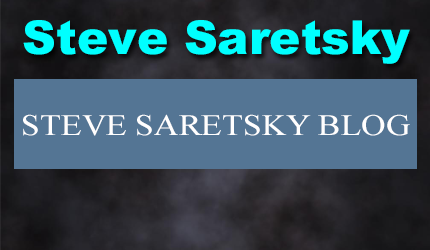September 14, 2022 | Hellbent on Flatlining the Economy

As expected, the Bank of Canada raised interest rates another 75bps this past week. The overnight rate is now up a whopping 300bps year to date, the quickest tightening of monetary policy on a percentage basis since the 1980’s. While there was no additional commentary from BoC Governor Tiff Macklem, the official press release notes, “Given the outlook for inflation, the Governing Council still judges that the policy interest rate will need to rise further.”
For what it’s worth, markets are still expecting the Bank of Canada to lift rates to 3.75% before hitting pause. So, assuming they are right we have another 50bps to go. However, even if they stopped here, the damage is already done, let’s assess.
The banks prime rate is now at 5.45%, which as per the always brilliant Rob Mclister, implies the following:
- Payments on a run-of-the-mill prime – 1.00% adjustable rate mortgage (ARM) will now be about $154 higher per month—per $100,000 borrowed—compared to March 1 (before the BoC started this campaign).
- Interest-only HELOC payments will leap by about $63 a month, per $100,000 borrowed.
- The lowest nationally available stress test rates have risen to:
- 6.59% uninsured (a 4.59% one-year fixed from Manulife Bank)
- 6.20% insured (a 4.20% five-year ARM from Nesto)
After today’s hike, Canada’s effective minimum qualifying rate (6.59% uninsured) will stand at its highest point in over two decades. Before March, it was 5.25%. That change equates to a roughly 11.3% drop in maximum theoretical buying power for a typical bank borrower with no non-mortgage debt.
Let’s assume you’re a young family who took out a million dollar floating rate variable mortgage. This is not uncommon given the typical price of a 3 bedroom home in Vancouver or Toronto hovers around $1.5M. Your monthly mortgage payment is now up just over $1500 / month from earlier this year before the Bank of Canada began their rate hiking cycle.
Or maybe you took out a Home Equity Line of Credit earlier this year. After all prices are up big time, you feel wealthier, why not tap into some of those gains?
Assuming your borrowed $300K on a HELOC:
Your monthly payment in March 2022 – $733.01
Your monthly payment today- $1469.39
You think this will cut discretionary spending elsewhere?
The economy is already slowing big time. Canada’s Q2 GDP was +3.3% vs the Bank of Canada’s estimate of 4.0%. Just this past week, the Canadian labour market lost another 40k jobs. Employment has now declined 113.5k in the past 3 months. Unemployment rate up from 4.9% to 5.4%, and 83% of these jobs losses were full-time positions.
The housing bull market is over, and the rest of the economy will follow. Remember when it used to take six months to get a new couch? Now furniture stores are laying off staff and cutting prices.
Here’s the CEO of Restoration Hardware this week, “People keep saying, are we going to be in a recession? We’re in a recession. Anybody who thinks we’re not in a recession is crazy. The housing market is in a recession & it’s just getting started. So it’s probably going to be a difficult 12 to 18 months in our industry.”
Central banks over committed to the transitory inflation narrative, and now they’re over committing to the whatever it takes narrative. There will be an uncomfortable lag between now and the eventual pivot.
The irony of all this is that while the central bank is hellbent on flatlining the economy, governments are working in reverse, desperately trying to keep their voter base afloat.
The Trudeau Government is set to announce a doubling of GST tax rebates for six months and support Canadian households struggling to pay rent. The government will also provide a $500 one time top-up to a housing benefit that is provided to low earners who need help paying rent, and will provide initial details for a dental-care plan. This comes on top of new subsidies already announced from provincial governments, which, according to BMO’s Robert Kavcic account to roughly $4.4B, or about 0.2% of GDP.
If there’s one way to ensure interest rates remain higher for longer it will be from the lack of restraint of governments, which, ironically, will harm the people they are most desperately trying to help.
STAY INFORMED! Receive our Weekly Recap of thought provoking articles, podcasts, and radio delivered to your inbox for FREE! Sign up here for the HoweStreet.com Weekly Recap.
Steve Saretsky September 14th, 2022
Posted In: Steve Saretsky Blog















Good article Steve. The two biggest problems currently facing Canada are…. 1) The disastrous consequences of more than a decade of insanely reckless fiscal and monetary policies, and 2) The disastrous consequences of more than a decade of insanely excessive immigration which has directly helped to ARTIFICIALLY prop up rents and real estate prices in Canada. The solutions for all of this are pretty straightforward… Keep interest rates at or above current levels, drastically reduce government spending and drastically reduce immigration for the next 5 years. Hopefully, the Canadian government will have the good sense to implement these solutions immediately.